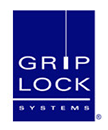Industry News
Advanced Street Lighting System Wins Three Prizes at The International Exhibition of Inventions
May 04, 2008
By Joyce Kam
The Standard: http://www.thestandard.com.hk/
A STREET LAMP that promises to last a long time, helps save energy and is cost-effective has turned the spotlight on Hong Kong Polytechnic University researchers at an international expo for inventors.
The team of researchers that developed an advanced street lighting system came away with three prizes at the International Exhibition of Inventions, New Techniques and Products held in Geneva last month. The lighting system won a gold medal, a special prize as well as the international press prize, voted on by journalists for the invention that drew the most attention.
The high-power light-emitting diode street lighting system with a modular lamp holder uses only one- tenth of the energy utilized by traditional lighting systems, according to the researchers.
Lee Wing-bun, chair professor and head of industrial and systems engineering at the university, says the increased use of LEDs as a substitute for incandescent light bulbs will be inevitable, since they are environmentally-friendly.
According to Beijing Municipal Roadway Administration Bureau at the end of 2006, LEDs can save up to 190 million kilowatts each day for a 4,000-kilometer roadway that needs 300,000 street lights, while saving millions in costs.
Our specially-designed freeform optical surfaces with non-rotational symmetry can effectively and uniformly distribute light and save more energy, Lee says.
The modular lamp is made of five LED heatsink braces on which the high power LEDs are fitted. The five braces are then installed on a main brace depending on lighting required.
This unique design enables better dissipation of heat and facilitates the replacement of defective individual LEDs without the need to dismantle the lamp holder, Lee says.
The price of the freeform high- power LED street light is similar to that of traditional street lights, yet the biggest advantage will be the energy and cost savings, he adds. Not only does it save energy, it also has a longevity of eight to 10 years, while a traditional street light only lasts one year.
He says the university team is negotiating with the government to replace the street lights now in use in Hong Kong with freeform LED street lights, while several manufacturers have expressed interest.
The freeform optical surfaces allows us to concentrate light in any shape, so it can be applied to almost everything, like car headlights, advertising, decorative lighting, Lee points out. The system was invented by Lee and Sandy To, an assistant professor.
In addition to the LED lighting system, a Chinese chess set for visually impaired people, also from the university, was awarded a gold medal, while a construction platform, which provides an alternative repair and maintenance platform that is safer than the traditional bamboo scaffolding erected outside skyscrapers, also won gold.
The Chinese chess board was invented by Michael Siu, associate professor in the School of Design, while the platform was the work of Francis Wong, head of building and real estate, and his associate head, Albert Chan.
A harmful algae indexing system that predicts red tides, and a modern Chinese medicine debulking approach, which helps to remove unnecessary ingredients and reduces extracts into convenient modern dosages, won a silver medal at the expo. The indexing system was devised by John Liu, chair professor and head of logistics, Samuel Lo, associate head of applied biology and chemical technology, and Yan Jia, assistant professor of logistics.
Ho Kin-chung, a professor from the Open University of Hong Kong, integrated the water-quality parameters with theories of phytoplankton dynamics and formation mechanisms of red tides for this system.
The annual Geneva exhibition drew some 1,000 inventions by more than 700 exhibitors from 45 countries and territories and attracted more than 72,000 visitors.









































